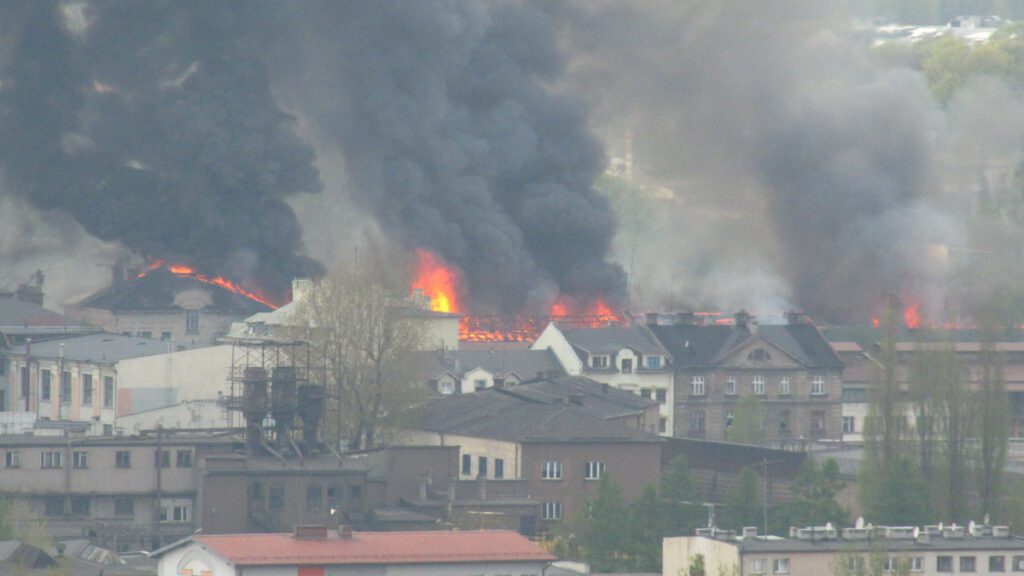What is fire ???
Fire is an uncontrolled combustion process that occurs in a place not intended for this purpose, spreading uncontrollably, causing a threat to the health and life of people and animals, as well as material losses.

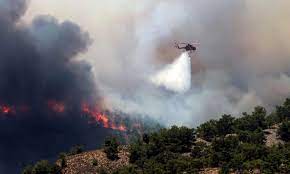
One of the places with the highest frequency of fires is the Peloponnese.
————————————–
The largest fire in Greece occurred in July 2018. The fire engulfed areas east of Athens, in the region known as Attica. This tragic fire caused many victims and significant damage.
Causes of fires in Greece:
Low soil moisture and high temperatures encourage fires to ignite quickly. Many fires are caused by people who are careless with fire, leaving fires unextinguished or throwing cigarette butts in the forest or on the grass.
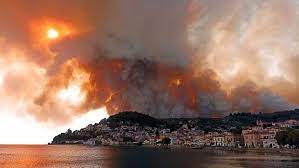
The fire season in Greece lasts from June to September. During this time, there are high temperatures exceeding 30°C – and sometimes even 40°C – and low rainfall, which causes drought in forest and grassy areas. These conditions favor the rapid spread of fire, especially if the heat is accompanied by wind.

In Greece, fires can be caused by various factors, both natural and human. Here are some of the main causes of fires in Greece:
Drought:
Periodic droughts are common in Greece, especially during the summer, which causes vegetation to become dry and flammable. Drought increases the risk of wildfires because it only takes a spark or ignited material to start a fire, which can spread quickly through dry vegetation.
Extreme weather conditions:
High temperatures, strong winds and low air humidity are often observed in summer in Greece. These conditions encourage fires to spread quickly, making fighting them more difficult.


Human activity:
Some fires in Greece are caused by human activities, e.g. leaving hazardous waste, careless use of fire in open areas, forgotten cigarettes and intentional arson.
Tourism and Recreation:
During the summer season, when tourism is at its peak, the risk of fires caused by tourists’ careless behavior, such as lighting bonfires in open areas without proper safety precautions, also increases.
Neglects in forest management:
Uncontrolled felling of trees, incorrect agricultural practices and lack of proper forest management may contribute to an increased risk of fires.

Therefore, the Greek authorities are taking remedial actions, such as monitoring weather conditions, increasing public awareness of fire risks, carrying out regular preventive activities in forests and strengthening the response capacity of fire brigades and other rescue services in the event of fires.
Fire types:

Class A fires:
These are fires involving solid materials such as wood, paper, fabric, textile materials, etc.
Class B fires:
These include fires involving flammable liquids or substances that can easily melt, such as gasoline, diesel fuel, grease, grease, etc.
Class C fires:
These are fires involving gases such as propane, butane, methane, hydrogen, acetylene, etc.
Class D fires:
Includes metal fires such as magnesium, titanium, lithium, etc.
Class K Fires:
These are explosive fires that occur in commercial kitchens or places where cooking oils, grease and other flammable substances are used.
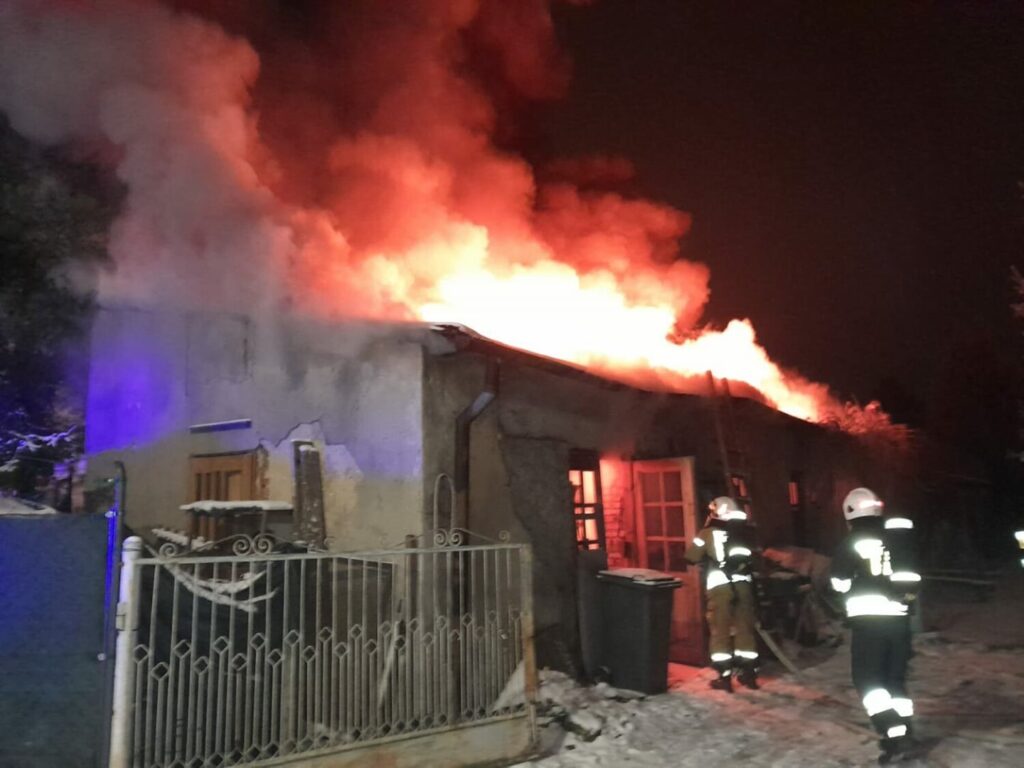
Fire levels:
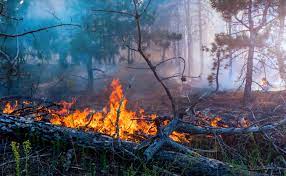
First stage (Incipient):
This is the earliest stage of a fire where the fire is still in its incipient stage and can be easily extinguished using appropriate means such as a fire extinguisher.
Second Stage (Growth):
The fire begins to grow and spread across the source, becoming more difficult to control.
Third stage (Fully Developed):
In this stage, the fire reaches full intensity, with a large flame and high temperature. This is the most dangerous stage.
Fourth Degree (Decay):
The fire begins to lose intensity and the flames weaken, although hot embers and smoke may remain.
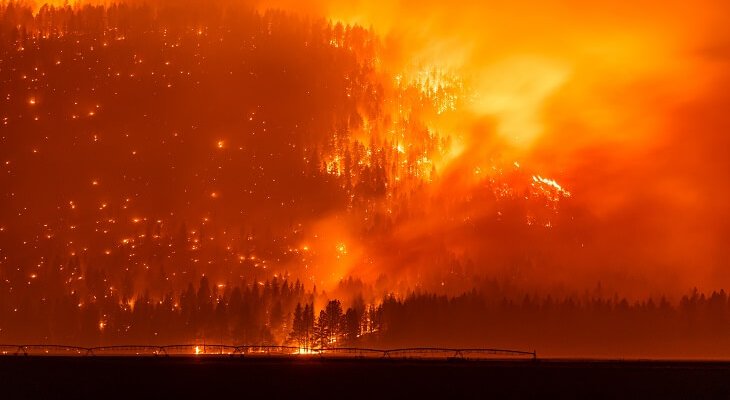
Understanding these types and degrees of fire is crucial to properly managing a fire situation and an effective rescue response.

How the Greeks behave during fires?
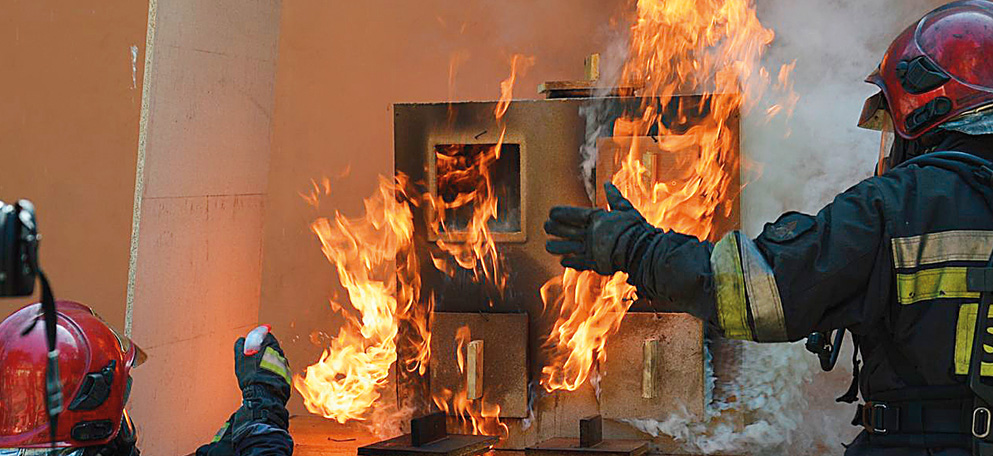
During fires, Greeks usually act quickly and effectively, trying to deal with the situation and protect their homes, properties and lives. Depending on the scale of the fire and its proximity to populated areas, people may be evacuated from endangered areas by emergency services or decide to evacuate themselves. In crisis situations such as fires, Greeks usually show solidarity and readiness to help each other and rescuers. However, as in any society, there may also be cases of panic or inappropriate behavior.
How to act during fires to ensure the most effective results?
Leave the danger area:
If you are in a fire danger area, leave the area immediately. Acting immediately may be crucial to your safety.
Stay calm:
Staying calm in a fire emergency is crucial. This helps you make good decisions and avoid panic, which can increase risk.
Listen to local authorities:
Follow announcements and recommendations issued by local authorities and emergency services. They have the most up-to-date information on the situation and safety recommendations.


Choose safe evacuation routes:
If you must leave a risk area, choose evacuation routes that are safe and accessible. Avoid moving towards burning areas.
Communication:
If possible, keep in touch with family and loved ones, informing them about your safety and evacuation plans. This way they can keep track of your situation and provide support.
Warn others:
If you see someone in danger or unaware of the danger, warn them and help them leave the area.
Seek shelter:
If you cannot leave the danger area, seek shelter in buildings or areas that are safe from the fire. Avoid places where you may become trapped or cut off from help.
Respiratory protection:
If you are in an area with a lot of smoke, use a wet cloth or mask to protect your respiratory tract. Smoke can be toxic and hazardous to health.
